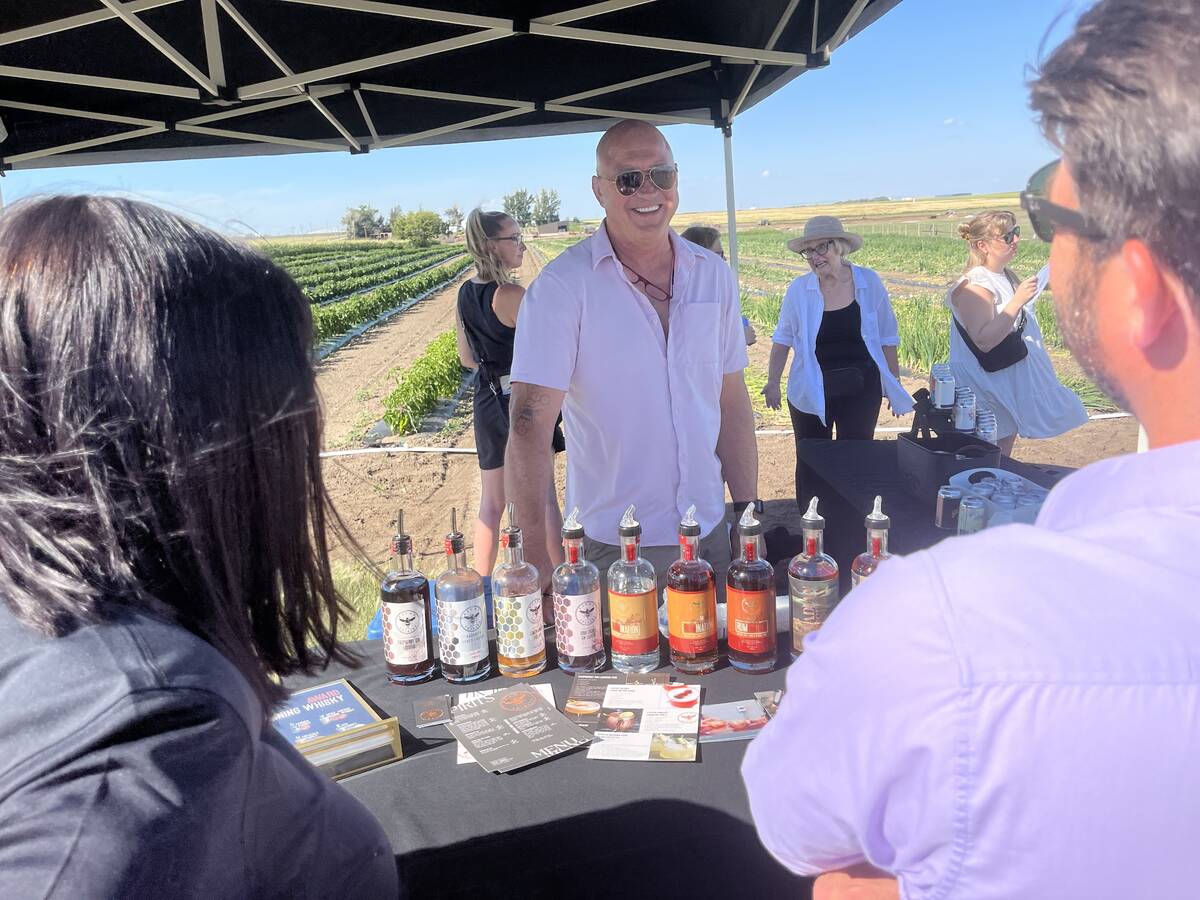CREMONA, Alta. – Three generations work together on the Gordon Reid family farm.
Sons Mark, Robert and Richard and Richard’s sons, David and Phillip, meet with Gordon each morning for coffee, lay out plans for the day, check the market reports on-line and go to work on their mixed operation at Cremona in western Alberta.
They share work, family values and staunch opinions on grain politics and more precisely, a decades-old frustration with the Canadian Wheat Board’s powers as a single seller of their barley.
Read Also

From farmer to award-winning distiller
Pivot Spirits showcases transition from farmer to distiller with provincial award-winning results in Alberta for Lars Hirch
“I have a long history of not wanting too much government interference. I was not happy when they instituted the monopoly on barley, which is our main crop here, in 1948,” said Gordon.
That mindset attracted him to the Western Barley Growers Association.The pro-choice organization, founded in 1977, recently named him a lifetime member. He is a former president.
Born in 1924, Gordon has seen farm work and policy change vastly over eight decades.
“I have seen a lot of changes and about 90 percent of them, I have been against,” he said, laughing.
A gentleman activist, Gordon Reid is well spoken, polite and steadfast in his beliefs.
He speaks his mind at the barley growers boardroom table, where he remains as a director, and he has told provincial and federal agriculture ministers going back to Eugene Whelan what he thinks.
“My whole farming life, he has been trying to get us the same freedoms as the farmers in the rest of Canada,” said his son, Richard.
His sons are not confident that marketing and regulatory change will come any time soon through Parliament or any other means.
“I still have a little bit of hope,” said the elder Reid.
Barley is a major seeded crop for this area and in most years the Reids achieve malting quality. That means dealing with the wheat board and subsequent frustrations over sales and delivery, even though there are malting plants in Calgary and Alix, a few hours away.
“The CWB deducts $27 a tonne freight and about $10 or $11 a tonne elevation charges, plus other charges. What actually happens from our sealed bins, it goes directly from sealed bin to the malting company. We hire a truck and we pay the truck,” Gordon said.
“It doesn’t go up or down or anywhere near an elevator, but that’s part of the culture of the wheat board.”
Gordon also wants to know the actual selling price of the grain, who bought it and why they cannot obtain no-cost export permits like their colleagues in Ontario.
So why not abandon barley?
This farm is at a 1,200 metre elevation with cool nights and a short growing season that limits crops to barley, timothy hay and canola. Wheat grades no better than feed or No. 3.
“Climate determines what grows here,” said Richard.
The Reids strive for efficiencies. It is a no-till farm because it saves labour and diesel fuel and improves conservation. To remain a successful operation, they have to be sharp managers to handle changes beyond their control.
“Our input costs have skyrocketed. We have a hope of better prices with this coming crop but there is no guarantee at this point and the prices of our inputs are not suddenly going to drop,” said Richard.
Their major crop is timothy hay, grown widely throughout the Cremona area.
“What has really sustained our farm is export hay,” Gordon said.
They grow about 1,400 acres and produce about 100,000 square bales in a good year. Their greatest challenge in this high rainfall area is getting the hay dry enough for shipment. Some is stored at the farm, or sent to one of two nearby processing plants for compression and export to Japan in containers.
It is not all work and politics. Three generations live and work on this farm, where they share laughter, music and pride in staying together.
“Our farm is quite unique for him to still have three sons and their kids working with the family,” said Gordon’s wife, Peggy, who came from New Jersey.
A music student, she visited relatives in Alberta and met Gordon. They married in 1947 and both are active in the local church, where she plays organ and guides the choir.
Reid’s grandfather came to the area in 1903 and the family received recognition several years ago for continuously operating for 100 years.
The mantelpiece is covered with family photos because there are five children, 14 grandchildren and 14 great-grandchildren, with more expected within months.
Each generation maintained a strong connection to the farm because all regarded it a worthy occupation.
“All of our children that went to university or Olds College, all had agriculture degrees,” said Peggy.
Grandchildren are employed with agribusiness and a granddaughter is soon to graduate as a veterinarian from the University of Saskatchewan.
Their eldest son, John, farms nearby and he also has a daughter who lives on a farm in Saskatchewan.















